
Sidra DeKoven Ezrahi (born October 31, 1942) is Professor Emerita of Comparative Literature at the Hebrew University of Jerusalem.

Sidra DeKoven Ezrahi (born October 31, 1942) is Professor Emerita of Comparative Literature at the Hebrew University of Jerusalem.
Sidra DeKoven Ezrahi is the daughter of Janet and Herman DeKoven. Her mother was a social worker born in Ostrowiec, Poland, who at age 12 immigrated to the United States with her family. Her father was a lawyer born in Chicago, Illinois.[ citation needed ]
DeKoven Ezrahi was born in Washington D.C. and grew up in Highland Park, Illinois. She attended Wellesley College and spent her junior year at the Hebrew University, [1] where she subsequently completed her bachelor's degree in English and Political Science (1966). DeKoven Ezrahi returned to the United States and received her M.A. (1968) and PhD (1976) in English and American literature from Brandeis University.[ citation needed ]. [2]
In 1978, DeKoven Ezrahi was appointed head of the literature section at the Institute for Contemporary Jewry at the Hebrew University. She also taught at the Rothberg School for Overseas Students at Hebrew University and served as the head of the Department of Humanities at the "Mechina", the University's academic preparatory program. In 2008, Ezrahi joined the Hebrew University's Department of General and Comparative Literature. In 2011 she retired as Full Professor.[ citation needed ]
She was visiting professor at Yale University, Princeton University, University of Michigan, Dartmouth, University of Toronto and Susquehanna University.
DeKoven Ezrahi served as academic advisor to the Jewish Museum in New York (1999-2000); she received grants from the Memorial Foundation for Jewish Culture and from the National Endowment for the Humanities (NEH).[ citation needed ] In 2007, DeKoven Ezrahi was awarded the Guggenheim Fellowship for her project on Jerusalem (see publications, below).
DeKoven Ezrahi has been a member of the editorial boards of Tikkun , History and Memory and Teoriya u-vikoret (Hebrew). She has written reviews and opinion pieces for The New Republic, Haaretz, Tikkun, Salmagundi and others.
DeKoven Ezrahi was awarded an Honorary Doctorate by Hebrew Union College, Jerusalem in 2019.
She is a peace activist in Israel and when the First Intifada broke out she was one of the initiators of a dialogue group in Jerusalem with Palestinian residents of Beit Sahour.[ citation needed ]
DeKoven Ezrahi's early work engaged with representations of the Holocaust in literature and culture. Her book, By Words Alone: The Holocaust in Literature, was published by the University of Chicago Press in 1980 and was nominated for the National Jewish Book Award in 1981.[ citation needed ]
DeKoven Ezrahi went on to focus on the Holocaust as a shifting component in the works of Israeli writers from S.Y. Agnon, [3] Aharon Appelfeld [4] and Dan Pagis [5] to David Grossman. [6] In the late 20th and early 21st centuries, she took part in discussions within the new theoretical field initiated by Saul Friedlander that dared to probe the "limits of representation."[ citation needed ]. [7] "Booking Passage: On Exile and Homecoming in the Modern Jewish Imagination" published in 2000 by the University of California Press, explores the Jewish Journey and the trope of "return" in Jewish literature, beginning with the poems of Yehuda Halevi in the 12th century. It was nominated for the Koret Prize in 2001.[ citation needed ] A version of the first half of the book was published in Hebrew as "Ipus ha-masa ha-yehudi" (Resling Press 2017). "Shlosha Paytanim, a study of three poets of the “Sacred Quotidian”--Paul Celan, Dan Pagis and Yehuda Amichai" was published by Mossad Bialik in 2020. In her later writing, DeKoven Ezrahi posits a generic range of Jewish literature in the twentieth century on three continents. In contrast to the tragic Jewish narrative prevailing in Europe after the shoah and the epic narrative of modern Israel, American Jewish literature has a special place in the writings of DeKoven Ezrahi as a stage for "the Jewish comedy". [8] In many essays, but particularly in monographs on Philip Roth [9] and Grace Paley, [10] she points to the moment in the middle of the twentieth century when the barriers were lifted and the comic potential was unleashed at the intersections between modern Jewish and Christian religious imaginations.
DeKoven Ezrahi's latest publications focus on post-1967 Israel, specifically on the yearning for physical proximity to the Sacred Center following Israel's victory in Jerusalem. "When Exiles Return", [11] "From Auschwitz to the Temple Mount: Binding and Unbinding the Israeli Narrative" [12] and '"To what shall I compare thee?' Jerusalem as Ground Zero of the Hebrew Imagination", [13] explore these dilemmas. Their resolutions are articulated in the fiction of S.Y.Agnon [14] [15] and the poetry of Yehuda Amichai. [16] These arguments coalesce in "Figuring Jerusalem: Politics and Poetics in the Sacred Center" [Sidra DeKoven Ezrahi: Figuring Jerusalem: Politics and Poetics in the Sacred Center 2022, Chicago: University of Chicago Press] ,Awarded the National Jewish Book Award in 2023.( https://www.jewishbookcouncil.org/book/figuring-jerusalem-politics-and-poetics-in-the-sacred-center), which provides new readings of biblical and medieval texts and imagines a dialogue between these classical texts and the two scribes of modern Jerusalem, Agnon and Amichai.
DeKoven Ezrahi is married to Bernard Avishai, a writer, journalist and academic. They live alternately in Jerusalem and in New Hampshire. She has three children from her marriage to her first husband, Yaron Ezrahi. and three stepchildren. Together, DeKoven Ezrahi and Bernard Avishai have eleven grandchildren.

Shmuel Yosef Agnon was an Austro-Hungarian-born Israeli novelist, poet, and short-story writer. He was one of the central figures of modern Hebrew literature. In Hebrew, he is known by the acronym Shai Agnon. In English, his works are published under the name S. Y. Agnon.
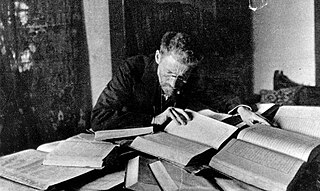
Israeli literature is literature written in the State of Israel by Israelis. Most works classed as Israeli literature are written in the Hebrew language, although some Israeli authors write in Yiddish, English, Arabic and Russian.
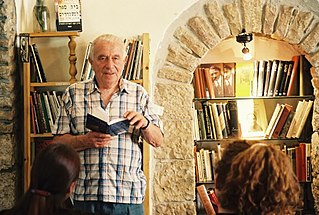
Yehuda Amichai was an Israeli poet and author, one of the first to write in colloquial Hebrew in modern times.

Hebrew literature consists of ancient, medieval, and modern writings in the Hebrew language. It is one of the primary forms of Jewish literature, though there have been cases of literature written in Hebrew by non-Jews. Hebrew literature was produced in many different parts of the world throughout the medieval and modern eras, while contemporary Hebrew literature is largely Israeli literature. In 1966, Agnon won the Nobel Prize for Literature for novels and short stories that employ a unique blend of biblical, Talmudic and modern Hebrew, making him the first Hebrew writer to receive this award.

Dan Pagis was an Israeli poet, lecturer and Holocaust survivor.

Agi Mishol is an Israeli poet. Considered by many to be one of Israel's most prominent and popular poets, Mishol's work has been published in several languages, and has won various awards including the Zbigniew Herbert International Literary Award and the Yehuda Amichai prize for literature.
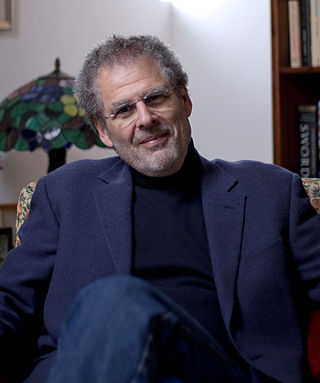
Bernard Avishai is an Adjunct Professor of Business at Hebrew University of Jerusalem. He lives in Jerusalem and the United States. He has taught at Duke University, the Massachusetts Institute of Technology (MIT), and Dartmouth College, and was director of the Zell Entrepreneurship Program at the Interdisciplinary Center Herzliya in Israel. From 1998 to 2001 he was International Director of Intellectual Capital at KPMG LLP. Before this he headed product development at Monitor Group, with which he is still associated. From 1986 to 1991 he was technology editor of Harvard Business Review. A Guggenheim Fellow, Avishai holds a doctorate in political economy from the University of Toronto. Before turning to management, he covered the Middle East as a journalist. He has written many articles and commentaries for The New Yorker, The New York Review of Books, Harvard Business Review, Harper's Magazine and other publications. He is the author of three books on Israel, including the widely read The Tragedy of Zionism, and the 2008 The Hebrew Republic.

Yaron Ezrahi was an Israeli political theorist and philosopher, professor at The Hebrew University of Jerusalem, a senior Fellow at the Israel Democracy Institute in Jerusalem, and a public intellectual. Ezrahi was known for his work on the relations between modern science and the rise of the modern liberal democratic state and the political uses of scientific knowledge and authority. His late work focuses on the deterioration of the Enlightenment version of the partnership between science, technology and democracy, the changing parameters of postmodern imaginaries, and performances of the democratic order. His books, written in English and Hebrew, were translated into German and Chinese.
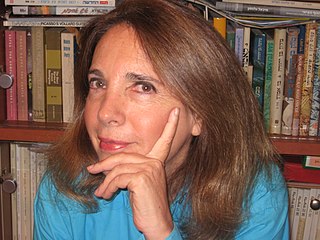
Nitza Ben-Dov is Professor of Hebrew and Comparative Literature at the University of Haifa. Winner of the 2021 Israel Prize
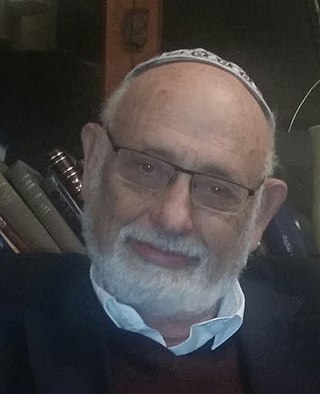
Hillel Weiss is a professor emeritus of literature at Bar Ilan University in Israel.
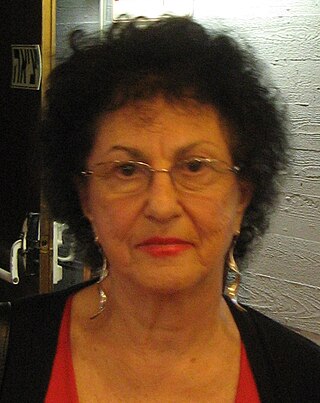
Pnina Gary was an Israeli actress and theatre director.
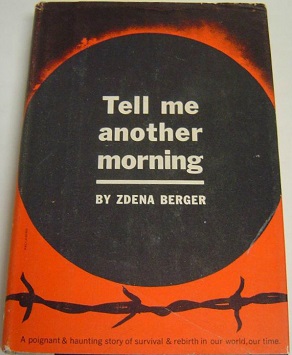
Tell Me Another Morning is an autobiographical novel by Zdena Berger, a survivor of Holocaust camps at Theresienstadt, Auschwitz and Bergen-Belsen. Berger began writing the book in 1955 after coming to North America and in 1961 she published the work through Harper & Brothers. The work went out of print shortly thereafter but was reissued in 2007 through Paris Press. The book depicts the experiences of Tania Andersova, a teenage girl who is taken away to the Nazi concentration camps during the Holocaust.

Roman Katsman is an Israeli professor and researcher of Hebrew and Russian literature. He is Full Professor of the Department of Literature of the Jewish People in Bar-Ilan University.
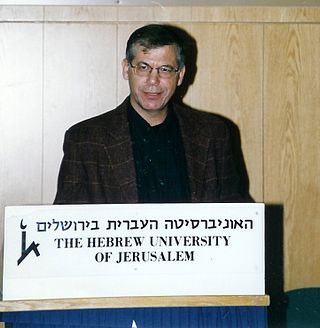
David Fishelov, born June 1, 1954, is an Israeli professor emeritus of comparative literature at the Hebrew University of Jerusalem.

Devorah Baron was a pioneering Jewish writer, noted for writing in Modern Hebrew and for making a career as a Hebrew author. She has been called the "first Modern Hebrew woman writer". She wrote about 80 short stories, plus a novella titled Exiles. Additionally, she translated stories into Modern Hebrew.

Michal Govrin is an Israeli author, poet and theater director.
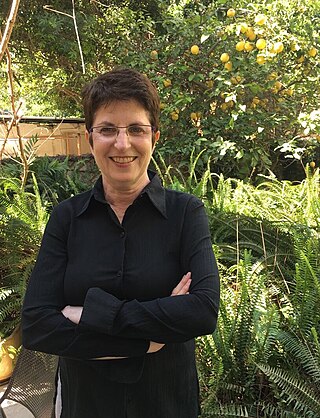
Michal Arbel-Tor is a researcher of Israeli literature and a lecturer in Hebrew literature at Tel Aviv University.
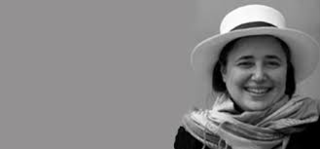
Haviva Pedaya is an Israeli poet, author, cultural researcher, and professor of Jewish history at Ben-Gurion University, where she is head of the Elyachar Center for Studies in Sephardi Heritage.
Nili Rachel Scharf Gold is an Israeli-American professor of modern Hebrew language and literature in the Department of Near Eastern Languages and Civilizations at the University of Pennsylvania. Taking an interdisciplinary approach to the study of modern Hebrew literature, she draws in her research on approaches from psychoanalysis, urban history, diaspora and migration studies, and studies of collective and individual memory. She has published prize-winning books on the Israeli Hebrew poet, Yehuda Amichai, and on the cultural, social, and architectural aspects of the city of Haifa. She has promoted an awareness of modern Hebrew culture in the United States by sponsoring conferences about, and public readings and lectures by, a range of Israeli writers and filmmakers.